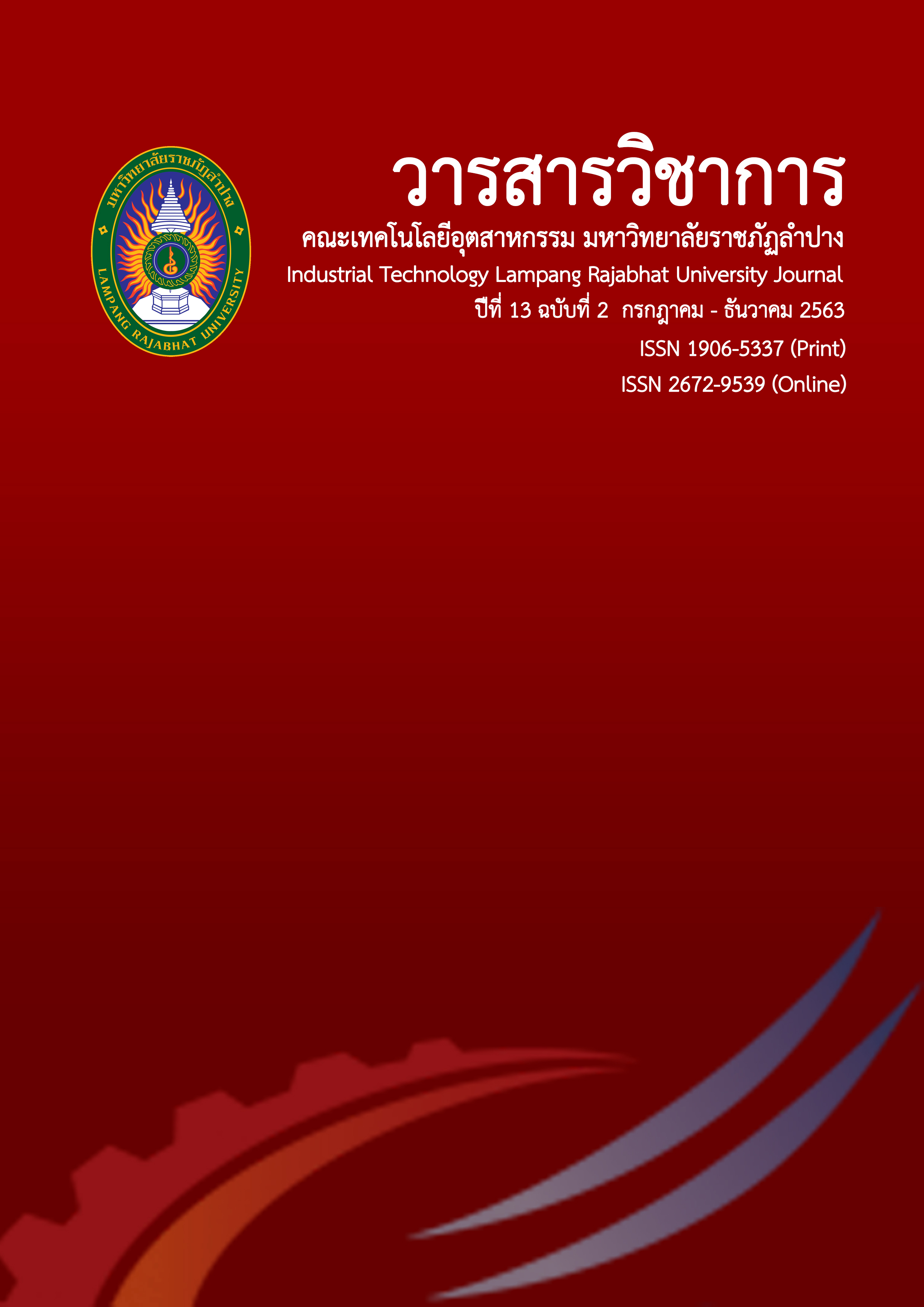Greenhouse gases Evaluation and Reduction of Mae Tha Municipality, Lampang Province
Keywords:
GHG emissions, carbon footprint for Organization, biogas, waste managementAbstract
This research aimed to evaluate the greenhouse gas (GHG) emissions of Mae Tha municipality according to the carbon footprint guidelines of the Thailand Greenhouse Gas Emission Organization (TGO). Related activity data for the year 2019 were collected including fossil fuel combustion, waste management, fugitive emissions from refrigeration, electricity, and paper consumption. The results showed that open-dumped municipal waste management was the largest source of emissions (96.53%) caused by methane released from the anaerobic digestion process. Residential food waste collection to produce biogas can reduce GHG by up to 1,527.27 tCO2eq or 69.27% of the total GHG emissions.
References
IPCC (Intergovernmental Panel on Climate Change). (2006). IPCC Guidelines for National Greenhouse Gas Inventories, [online], Available: https://www.ipcc-nggip.iges.or.jp/public/2006gl/, access on December 2, 2019.
Kerdlap, P. (2017). The Design and Installation of Illumination System for Energy Saving by Using LED Lamp of Fluorescent T8: Faculty of Engineering, Eastern Asia university. EAU HERITAGE JOURNAL Science and Technology. Vol. 11 No. 1: January – April. pp. 140-147.
Maneechot, P., Wongpanyo, W., and Vichanpool, B. (2020). DEVELOPMENT OF SMART METER FOR ELECTRICITY CONSUMPTION MANAGEMENT IN ENERGY PARK, KAMPHAENGPHETRAJABHAT UNIVERSITY. Academic Journal Uttraradit Rajabhat University (Science and Technology). Vol. 15. No 1: January – June. pp. 51-66.
Ministry of Science and Technology. Integrate Solid Waste Management. [online]. Available: https://www.mhesi.go.th/main/th/165-knowledge/practical-rad/4041--integrated-solid-waste-management-iswm. access on June 6, 2017.
Nualaong, P. (2020). Development of Energy Efficient Power Management Model of the office Provincial Administration of Thailand in the Future. Journal of Yala Rajabhat University. Vol.15 No.3: September – December 2020. pp. 314-318.
Pinate, W., and Dungpontong, D. (2018). Production or Refuse-Derived Fuel-5(RDF-5) from Municipal Waste: A Case Study involving Rajabhat Mahasarakham University. Industrial Technology Lampang Rajabhat University Journal. Vol. 9. No 1: January – June. pp. 72-86.
Taksin, N. (2015). Participatory Implementation Plan in Electricity Reduction of Suan Dusit Rajabhat University. Journal of Multidisciplinary in Socials sciences. Vol. 11 No. 3: September - December 2015. pp. 65-81.
Thailand Greenhouse Gas Management Organization. (2018). Carbon Footprint for Organization. pp. 29-33.
Thailand Greenhouse Gas Management Organization. (2020). Emission factor for Carbon Footprint for Organization.
Downloads
Published
Issue
Section
License
Copyright (c) 2020 Industry Technology Lampang Rajabhat University

This work is licensed under a Creative Commons Attribution-NonCommercial-NoDerivatives 4.0 International License.






